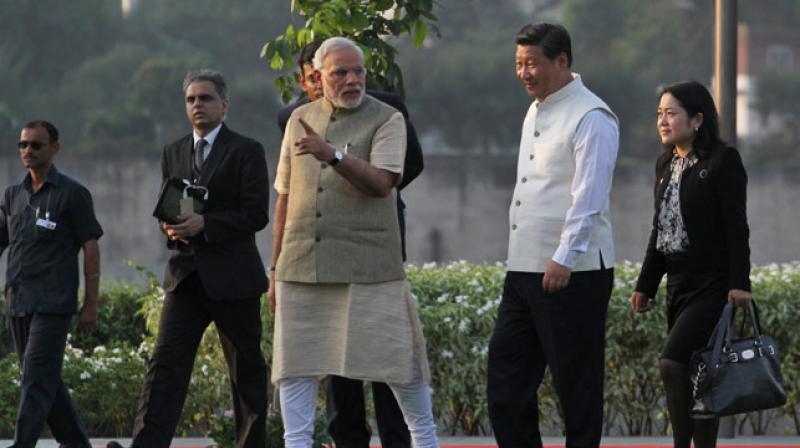India should accept asymmetry with China: Chinese media
The asymmetry should not be an impediment in developing relations, the article said.

Beijing: India should acknowledge "asymmetry" in its ties with China and learn from Beijing how it took a "back seat" to maximise gains from bilateral ties with the US, state-run Chinese media said on Monday.
"One lesson India may learn from China is be honest with oneself. Asymmetry in economic and geopolitical power is natural for any bilateral relation," an article in the website of Global Times said, analysing the outcome of the upgraded Sino-India strategic dialogue on February 22.
The dialogue was aimed at improving ties and resolving differences after China blocked India's admission into the Nuclear Suppliers Group (NSG) and UN ban against JeM leader Masood Azhar.
"The asymmetry should not be an impediment in developing relations," the article said.
"China has rarely complained about taking a back seat in its relations with the US, as long as such pragmatism and entrepreneurship help it to catch up quickly," it said.
"The moral of the story is straight forward: existing gap, even if it seems wide, should not be the major concern; what's more important is the ways by which such gap can be closed most effectively," it said, suggesting that India should look at convergences than differences.
"Acknowledging this asymmetry in a hard-headed pragmatism, rather than obsessing with the false parity, may better help India to achieve its emulation quickly," it said.
"While it is understandable that if India makes up its mind to play second fiddle to its stronger neighbour, its cherished self-esteem may be troubled, from time to time, by any condescension it would perceive, be it real or self-imposed," it said.
Referring to the strategic dialogue between Foreign Secretary S Jaishankar and Chinese Vice Foreign Minister Zhang Yesui, it said, "While most Chinese scholars and critics received the dialogue positively, believing it may thaw the atmosphere and propel the bilateral relations into a new era, their Indian counterparts turned out to be rather pessimistic if not cynical, quoting the 'unsolved' issues like the NSG and Azhar".
"Understanding this critical difference between the two is the key to capturing the shifting dynamics between the two emerging economic giants," it said.

